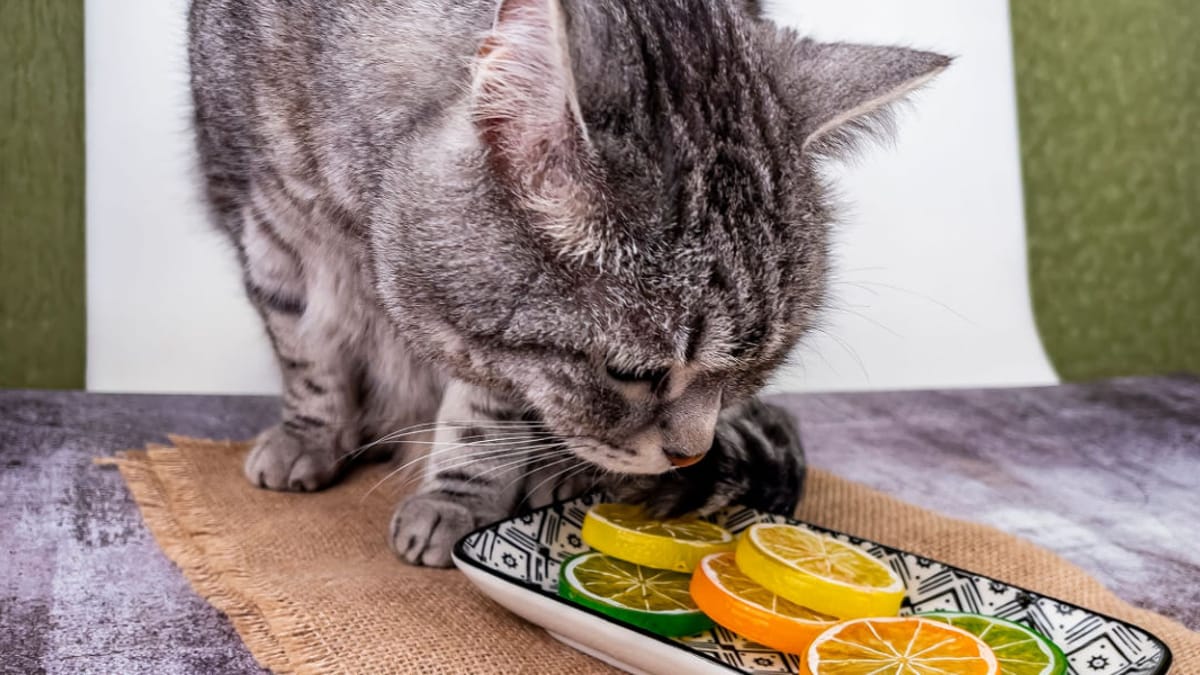Cats are carnivores, so their diet is often linked to the consumption of meat. However, your pet can also eat other foods, such as vegetables but also fruit.
So, give him citrus fruits for cats is it good for their health? Or are they dangerous for our beloved four-legged friends?
By nature, cats are curious about almost everything. In fact, some foods and smells can make our feline friends run in the opposite direction!
This is also the case with citrus fruits: their smell and taste do not attract cats at all. Because? Let’s find out now!
Can I give citrus fruits to cats?
Let’s get straight to the point: is giving citrus fruits to cats a good or bad idea?
The answer is unequivocal:
Citrus fruits are toxic to cats. Oranges, lemons, tangerines and grapefruit are forbidden fruits for cats and can make them seriously ill if ingested in large quantities.
Why aren’t citrus fruits good for cats?
This is explained by the defense mechanism which causes felines to be naturally repelled by the scent of citrus fruits, so much so that there are sprays and animal repellents on the market.
All “fault” of lemonessential oils and large amounts of citric acid contained in citrus fruits, all elements that cats find repulsive.
Citrus fruits to avoid
Citrus fruits that should be kept away from cats are basically all:
- Lemon;
- Lime
- Oranges;
- Mandarins,
- Clementine;
- Grapefruits;
- Bergamots.
Cats don’t like the smell of citrus fruits!
Strong citrus scents can be used to curb many bad behaviors in cats. Citrus peels and citrus sprays will keep cats off furniture, houseplants and gardens.
What parts of citrus fruits are poisonous to cats?
All parts of the fruit are poisonousbe it the peel, the pulp or the leaves.
However, not all citrus fruits have the same harmful effects on cats. Lemon and lime are the most dangerous, ahead of the orange. Conversely, mandarin and grapefruit have less pronounced effects.
This is because, as we have seen, citrus fruits contain a number of harmful ingredients for cats.
Citrus fruit for cats: what effect does it have on them?
There are many side effects of citrus fruits for cats, which vary according to the amount of fruit ingested.
The citric acid contained in citrus fruits irritates the digestive system of cats: the ingestion of citrus fruits can cause to cats gastrointestinal disordersincluding vomiting and diarrhea.
Essential oils lead to the same result. The cat can then drool and suffer from stomach pains, regurgitation and loose stools.
If large amounts of citrus are ingested, it can also occur central nervous system depressioncausing breathing problems, dizziness, fainting or seizures in the cat.
Finally, due to their acidity, they can cause skin irritations even in case of contact with the animal’s body.
Therefore, excessive amounts would have to be consumed for the animal to have truly severe reactions. Fortunately, most cats will completely naturally avoid eating or going near citrus fruits. If, on the other hand, the animal ingests only a small portion of the fruit, the symptoms are likely to be mild.
In summary, giving citrus fruits to cats is absolutely to be avoided! In any case, the advice to always keep in mind is to systematically check with your trusted veterinarian before making any changes to your pet’s diet, medication or habits.

